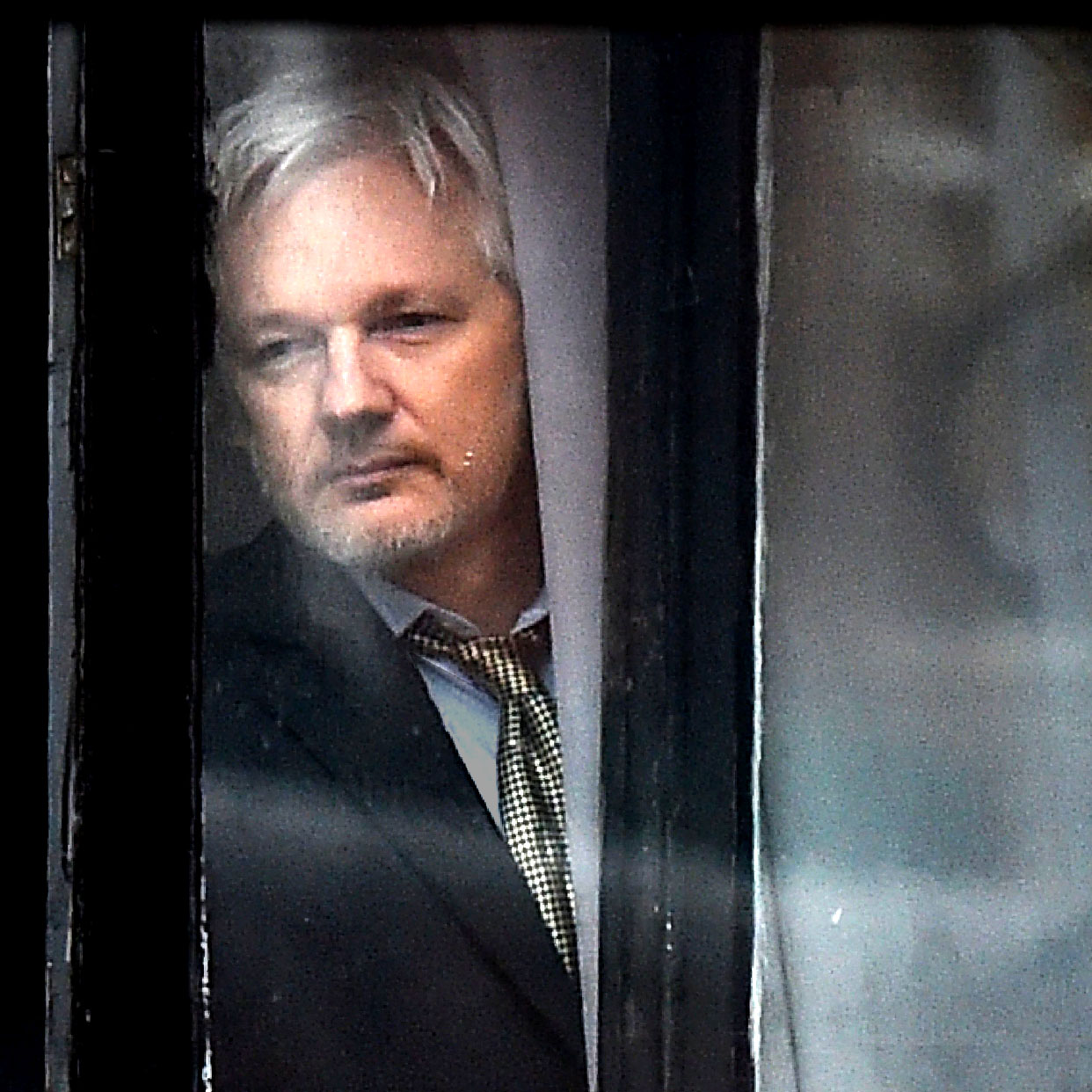Julian Assange faces new US spying charges
WikiLeaks co-founder could face decades in prison if convicted

A free daily email with the biggest news stories of the day – and the best features from TheWeek.com
You are now subscribed
Your newsletter sign-up was successful
The US Justice Department has filed 17 new charges against Wikileaks co-founder Julian Assange.
He is accused of violating the Espionage Act by publishing hundreds of thousands of secret diplomatic cables and files on the wars in Afghanistan and Iraq.
The WikiLeaks founder “could face decades in a US prison” as a result of the charges, The Guardian reports. CNN says the latest development has “alarmed free speech advocates who say it threatens to criminalise legitimate journalistic practices”.
The Week
Escape your echo chamber. Get the facts behind the news, plus analysis from multiple perspectives.

Sign up for The Week's Free Newsletters
From our morning news briefing to a weekly Good News Newsletter, get the best of The Week delivered directly to your inbox.
From our morning news briefing to a weekly Good News Newsletter, get the best of The Week delivered directly to your inbox.
The use of the Espionage Act to prosecute Assange signifies “a dramatic escalation in the government's pursuit of him”, says CBS News, while the BBC describes the charges as unusual. “Most cases involving the theft of classified information have targeted government workers and not the people who published it,” the broadcaster reports.
The new indictment, approved by a grand jury in Virginia, accuses Assange of publishing classified military and diplomatic documents in 2010.
It says he “repeatedly encouraged sources with access to classified information to steal and provide it to WikiLeaks to disclose” and helped former intelligence analyst Chelsea Manning to “crack a password hash [code] to a military computer”.
It also accuses him of putting the lives of Afghan, Iraqi, Chinese and Iranian sources at risk.
A free daily email with the biggest news stories of the day – and the best features from TheWeek.com
In all, he faces one count of conspiracy to receive national defence material, seven charges of obtaining it, nine charges of disclosing it and the original charge of conspiracy to commit computer intrusion.
“Assange’s actions risked serious harm to United States national security to the benefit of our adversaries,” said the US Justice Department, in “one of the largest compromises of classified information in the history of the United States”.
But WikiLeaks editor-in-chief Kristinn Hrafnsson described the new charges as “the evil of lawlessness in its purest form”.
Assange, 47, is serving a jail sentence in the UK for skipping bail. He was arrested on 11 April after Ecuador abruptly withdrew his asylum.
Swedish authorities are also seeking his extradition after reopening an investigation into a rape allegation made against him in 2010.
Manning was jailed in 2013 for her role in leaking secret military files to WikiLeaks, but her sentence was commuted by President Barack Obama in 2017.
She is currently back in jail after refusing to testify to a grand jury investigating WikiLeaks.
-
 Political cartoons for February 19
Political cartoons for February 19Cartoons Thursday’s political cartoons include a suspicious package, a piece of the cake, and more
-
 The Gallivant: style and charm steps from Camber Sands
The Gallivant: style and charm steps from Camber SandsThe Week Recommends Nestled behind the dunes, this luxury hotel is a great place to hunker down and get cosy
-
 The President’s Cake: ‘sweet tragedy’ about a little girl on a baking mission in Iraq
The President’s Cake: ‘sweet tragedy’ about a little girl on a baking mission in IraqThe Week Recommends Charming debut from Hasan Hadi is filled with ‘vivid characters’
-
 Epstein files topple law CEO, roil UK government
Epstein files topple law CEO, roil UK governmentSpeed Read Peter Mandelson, Britain’s former ambassador to the US, is caught up in the scandal
-
 Iran and US prepare to meet after skirmishes
Iran and US prepare to meet after skirmishesSpeed Read The incident comes amid heightened tensions in the Middle East
-
 Israel retrieves final hostage’s body from Gaza
Israel retrieves final hostage’s body from GazaSpeed Read The 24-year-old police officer was killed during the initial Hamas attack
-
 China’s Xi targets top general in growing purge
China’s Xi targets top general in growing purgeSpeed Read Zhang Youxia is being investigated over ‘grave violations’ of the law
-
 Panama and Canada are negotiating over a crucial copper mine
Panama and Canada are negotiating over a crucial copper mineIn the Spotlight Panama is set to make a final decision on the mine this summer
-
 Why Greenland’s natural resources are nearly impossible to mine
Why Greenland’s natural resources are nearly impossible to mineThe Explainer The country’s natural landscape makes the task extremely difficult
-
 Iran cuts internet as protests escalate
Iran cuts internet as protests escalateSpeed Reada Government buildings across the country have been set on fire
-
 US nabs ‘shadow’ tanker claimed by Russia
US nabs ‘shadow’ tanker claimed by RussiaSpeed Read The ship was one of two vessels seized by the US military